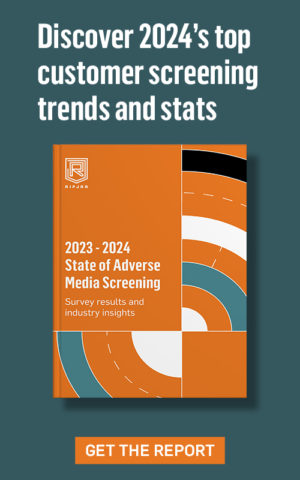The Australian Transaction Reports and Analysis Centre (AUSTRAC) is Australia’s financial intelligence unit and its primary financial regulator. AUSTRAC was founded in 1989 following the passage of the Financial Transaction Reports Act 1988 and is headquartered in Australia’s capital city, Canberra. AUSTRAC is organized into three departments that reflect its responsibilities: intelligence, capability and strategy, and regulation, education, and policy. The regulator is currently led by CEO Nicole Rose.
AUSTRAC is responsible for detecting and preventing financial crime in Australia and for providing regulatory oversight for the country’s financial service providers. In order to fulfil those responsibilities, AUSTRAC collects and analyzes reports from banks and other obligated organizations which it then uses to generate financial intelligence data for subsequent criminal investigations.
AUSTRAC Reporting Requirements
AUSTRAC operates under the authority of the Financial Transaction Reports Act 1988 and the Anti-Money Laundering and Counter-Terrorism Financing Act 2006. These regulations set out a range of financial compliance obligations and include anti-money laundering (AML) and counter-financing of terrorism (CFT) reporting rules for the following types of activity:
Reporting threshold: Firms in Australia must submit Threshold Transaction Reports (TTR) to AUSTRAC when handling transactions of A$10,000 or more (or an equivalent amount in foreign currency). TTRs must be submitted within 10 business days of the transaction date.
International funds transfers: When funds of any amount are transferred into or out of Australia, either electronically or via a designated remittance agreement, firms must submit an international funds transfer instruction report (IFTI) to AUSTRAC. IFTIs must be submitted within 10 days of the transaction.
Suspicious matters: When customers engage in any kind of suspicious activity, firms must submit a suspicious matter report (SMR) to AUSTRAC within 72 hours of detecting the suspicious activity (or 24 hours if it relates to terrorism).
Cross border movement: In 2020, the Australian parliament passed an amendment to the Anti-Money Laundering and Counter-Terrorism Financing Act. Under the new rules, when persons move physical currency in amounts of A$10,000 or more (or an equivalent amount of foreign currency) into or out of Australia, they must submit a cross border movement (CBM) report to AUSTRAC within 5 business days.
Risk Based Compliance
Following Financial Action Task Force (FATF) recommendations, AML rules in Australia require firms to take a risk-based approach to regulatory compliance, deploying AML/CFT measures proportionate to the risks that they face. Firms should build their risk-based compliance on an effective risk management solution in order to identify and assess their customers at onboarding, and to monitor their behaviour throughout the business relationship. In particular, firms should focus on the following key AML/CFT factors:
Identity verification: Firms should establish and verify the identities of their customers in order to build accurate risk profiles and to accurately match customer names during subsequent KYC screening and monitoring processes.
Transaction monitoring: Firms should continuously monitor their customers’ transactions in order to manage risk profiles, and identify transactions that may warrant an AUSTRAC suspicious matters report.
Political corruption: Politically exposed persons (PEP) such as elected, and government officials present an elevated AML risk. Accordingly, firms in Australia should screen their customers to determine whether they are PEPs and therefore warrant a greater degree of AML/CFT scrutiny. AUSTRAC requires firms to screen for domestic, foreign, and international PEPs.
Sanctions and watchlists: Australia maintains an autonomous international sanctions list and enforces United National Security Council sanctions. Accordingly, AUSTRAC requires firms to screen foreign customers against the relevant sanctions and watch lists and take any relevant compliance steps, such as asset freezes and SMR submission.
Adverse media: News stories often indicate customer involvement in money laundering or terrorism financing before official sources offer confirmation. With that in mind, AUSTRAC recommends that firms conduct adverse media searches, both at onboarding and throughout the business relationship, in order to detect news stories that affect their customers’ risk profiles. Adverse media searches should be conducted with sufficient scope and should include any relevant foreign language news sources.
AUSTRAC Initiatives
AUSTRAC works closely with financial institutions across the country to address emerging criminal methodologies and regulatory changes. With that in mind, AUSTRAC’s recent initiatives reflect a changing financial landscape:
De-banking: In October 2021, AUSTRAC issued a statement on de-banking as a result of account closures, and focused on the potential for that trend to increase the risk of money laundering. De-banking refers to the process of a financial institution exiting a business relationship with a customer as a result of perceived higher risk. AUSTRAC suggests that money transfer businesses, cryptocurrency exchanges, and fintechs are amongst the organizations most at risk of de-banking and may be exploited by criminals in the illegitimate financial system as a result. With that in mind, AUSTRAC urged banks to enhance their risk-management solutions to increase their capability to serve higher risk customers.
Cryptocurrency exchanges: In November 2021, an Australian government Senate Select Committee recommended establishing a new licensing regime for cryptocurrency exchanges. Under existing regulations, AUSTRAC imposes the same registration requirements on cryptocurrency exchanges that it does other financial service providers. The new licensing regime will be implemented to address gaps in current regulation and to improve protection for consumers.
Digital asset ‘travel rule’: FATF recently updated its ‘Travel Rule’ to include cryptocurrency services providers. The rule, which is implemented by AUSTRAC, requires the beneficiaries and originators of fund transfers to exchange identifying information in order to establish an audit trail and better address AML/CFT risks. The Australian Senate Select Committee recommended further clarification on AML/CFT measures as they apply to cryptocurrency service providers in order to ensure they are ‘fit for purpose’.









